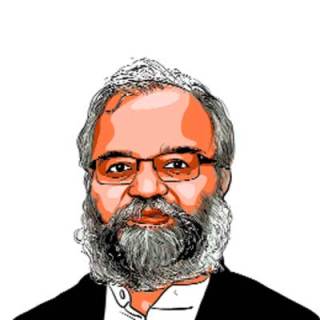Strangers in our midst
The decisive question for democracy in India: How should it deal with citizens who think differently and are annoying or inconvenient to ‘us’?

Nindak niyare rakhiye/ Aangan kuti chhawaye — keep your critics close to you/build them a cottage in your backyard — sang the medieval poet-thinker-saint Kabir Das, offering us a profound metaphor for modern democracy. For, unlike the misleading cliché about it being a form of government of, by and for the people, democracy is really an ongoing struggle for power among competitors claiming to represent the people. The redeeming feature of this power struggle is that even the losers are — or should be — assured of a cottage in the backyard, because the victor knows, or should know, that victory is always temporary, and the contest must be entered afresh ever so often.
It is our collective misfortune that the Narendra Modi regime seems determined to create an advanced version of the Emergency regime of Indira Gandhi by erasing the redemptive aspects of our democracy and reducing it to a shrill and demagogic authoritarianism. This tendency is best illustrated by the recently invented and painstakingly propagated label, “urban Naxal”. The label functions as a mobile shadow of the real war in central India that can be made to fall on practically anyone, defining them as an enemy combatant, and enabling them to be charged under harsh anti-terror laws like the Unlawful Activities (Prevention) Act (or UAPA).
While every democracy has legal limits to political activity, it is likely that there will be people who will exceed these limits, just as there will be others who support such people, yet others who support the supporters and so on. It is equally likely that leaders already in power will try to outlaw their political opponents so that they can retain power in perpetuity. Given these possibilities, it is imperative that definitions of what counts as anti-state activity be strict and not stretchable.
“Urban Naxal” is a classic instance of definition-stretching as it tries to create a penumbra around “Naxal”, itself a term that needs periodic re-examination. In this context, it is significant that the petitioners who approached the Supreme Court in the matter of the so-called “urban Naxals” arrested in August were described by counsel for the Union government as “strangers”.






































No hay comentarios:
Publicar un comentario